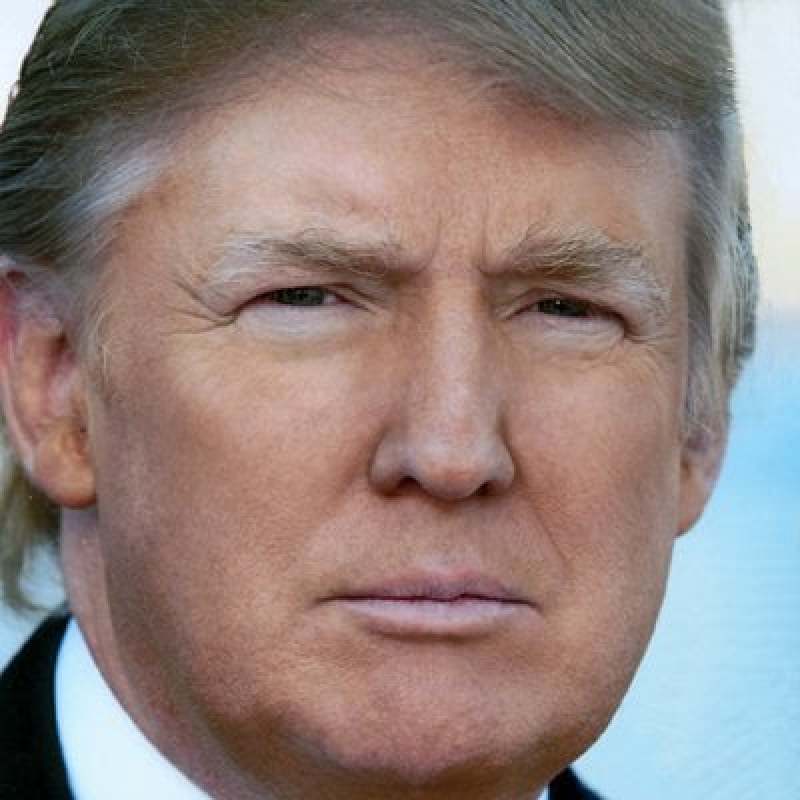
Former President Donald Trump responded to the Democrats' unconstitutional impeachment efforts through a 14-page letter submitted on Tuesday through his legal counsels Bruce Castor, Jr. and David Schoen.
The letter, addressed to the "honorable" members of the United States Senate, answers the "incitement of insurrection" and breaks the "impeachment allegations lodged against" Trump into "8 Averments" or points.
The first averment acknowledges the constitutional provision for the impeachment but denies its applicability to "the 45th President of the United States since he is no longer 'President'," for the said "constitutional provision requires that a person actually hold office to be impeached." Thus, the Senate is "unable to remove from office the 45th President whose term has expired" and "therefore irrelevant to any matter before the senate".
For Averment 2, Trump's legal counsels "denied" his engagement in "insurrection or rebellion against the United States" and that "as a private citizen" now, the "Senate has no jurisdiction over his ability to hold office and for the Senate to take action on this averment would constitute a Bill of Attainder", which violates the constitution.
On allegations that Trump violated his oath of office, Averment 3 exerted that the former president actually "executed his duties" and "acted to the best of his ability to preserve, protect, and defend the Constitution" at all times "while never engaging in any high Crimes or Misdemeanors". Trump's lawyers stressed that "the current proceeding before the Senate is void ab initio as a legal nullity patently contrary to the plain language of the Constitution".
As to the 4th Averment that addresses allegations on Trump's repeated issuance of "false statements" on election fraud, Trump admitted saying the election was fraud in exercise of "his First Amendment right under the Constitution" and makes such allegations "irrelevant to any matter properly before the Senate." The lawyers cited the same for the 5th Averment.
Trump, for Averment 6, denied inciting "the crowd to engage in destructive behavior" last Jan. 6, clarifying that his statement "if you don't fight like hell you're not going to have a country anymore" pertained to "the need to fight for election security in general, as evidenced by the recording of the speech." His legal counsels condemned the use of "seditious acts" in the article of impeachments due to it being "a term of art with legal meaning" and its use in the article "denied the context in which it was used."
Trump also denied, under Averment 7, allegations that he instructed Georgia Secretary of State Brad Raffensperger to "'find' votes to overturn the Georgia Presidential election results" before threatening him if he failed to do so. He clarified that "find" was used out of context because he meant it to mean "find that you may have many that aren't even signed and you have many that are forgeries."
With regards to allegations of "gravely" endangering "the security of the United States and its institutions of Government" under Averment 8, Trump denied doing so and denied "integrity of the democratic system, interfered with the peaceful transition of power, and imperiled a coequal branch Government."
"To the extent there are factual allegations made against the 45th President of the United States contained in Article I that are not specifically addressed above, said allegations are denied and strict proof at time of hearing is demanded," Trump's legal counsel undermined.
Castor and Schoen also identified eight legal defenses that the articles of impeachment lodged against Trump is "facially and substantially flawed, and otherwise unconstitutional, and must be dismissed with prejudice". These are on the basis of lack of jurisdiction because Trump "holds no public office from which he can be removed" making the "Article of Impeachment moot and non-justiciable," it violates "Article 1, Sec. 9. Cl. 3" of the constitution, and it "misconstrues protected speech and fails to meet the constitutional standard for any impeachable offense."
In addition, the lawyers cited the lack of "due process in rushing to issue the Article of Impeachment," it "violates the 45th President's right to free speech," it is "constitutionally flawed in that it charges multiple instances of allegedly impeachable conduct in a single article," and the "Chief Justice is not set to preside over the proceeding contemplated by the Senate" as he is "constitutionally required to do."
According to Townhall, Trump is scheduled for the impeachment trial in the Senate next Monday, Feb. 8. PJ Media, on the other hand, commented that the president's answer presents a "very strong case in his defense" due to the "salient arguments for his innocence" while giving a warning "against the dangerous precedent this impeachment would set for free speech and for due process."




























